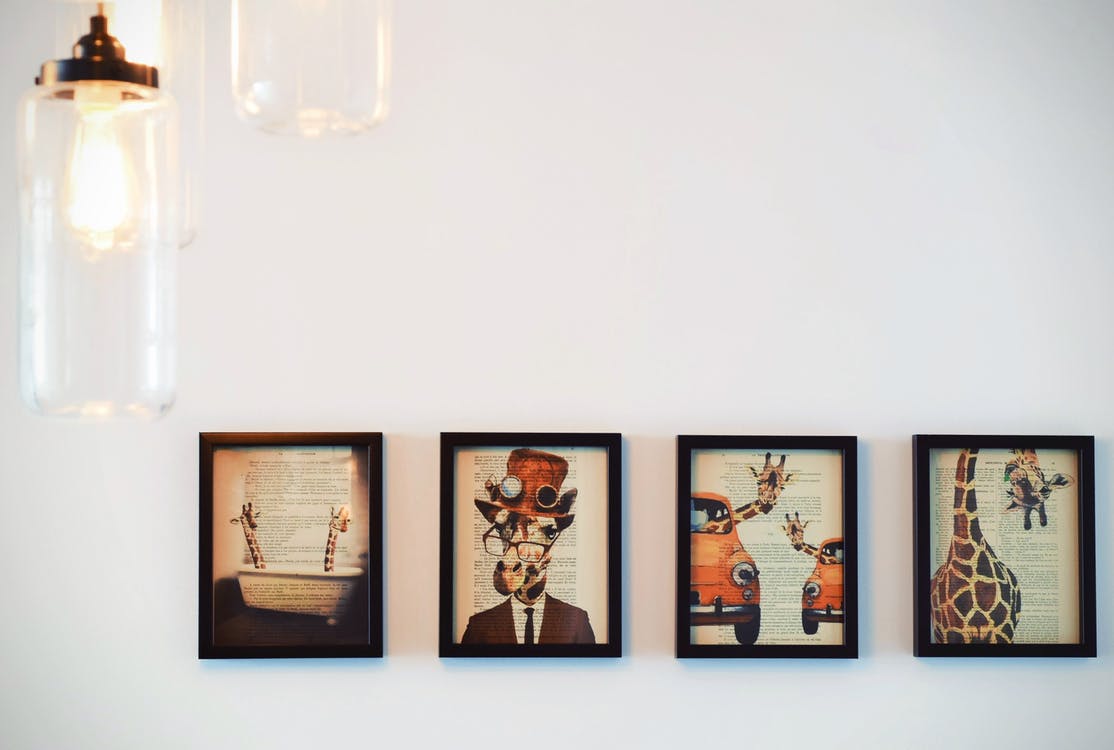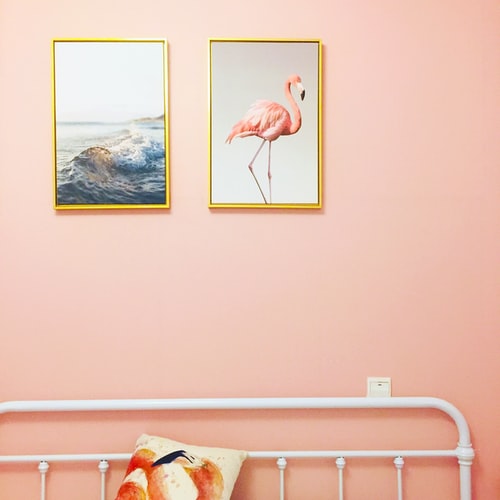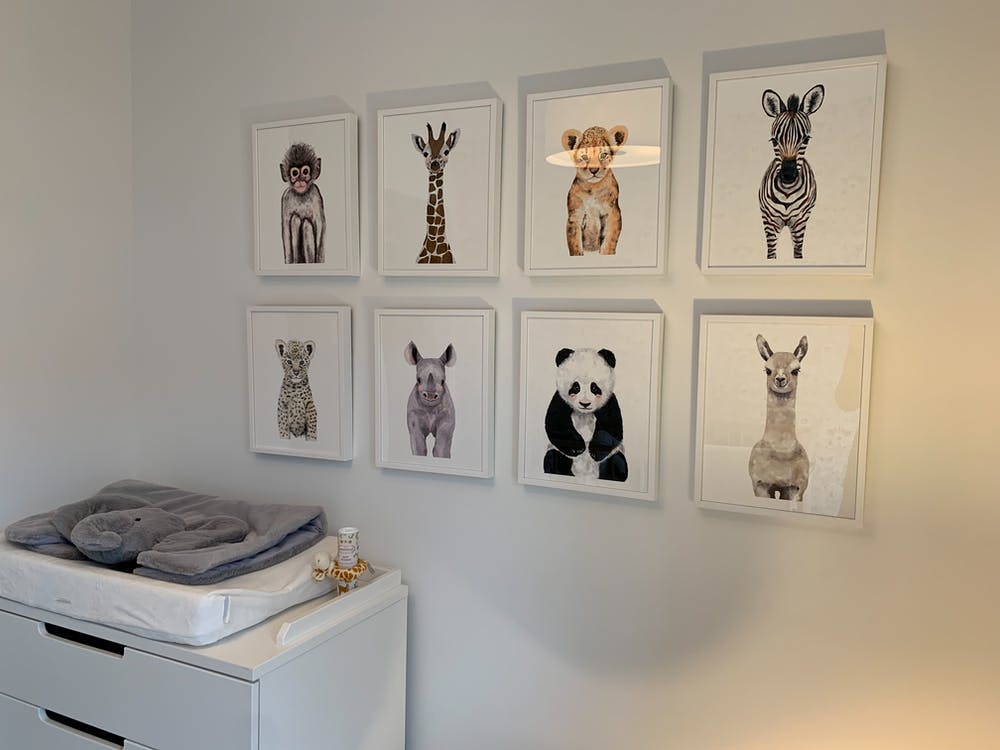Art prints – to frame or not to frame
What better way to put wall art on your walls than by using art prints? Sure, there are millions of other ways you can fill your walls using any type of wall art such as posters, plants, rugs, and the list goes on. But, why not simply use framed art pieces? Sometimes simple is better. Of course, you can put pictures you already have, but why not buy completely new art prints? They can be modern and fun and simply go well with your home décor.
Some people debate whether to frame or not to frame the artwork. Most would agree that professionally framed prints are totally worth it! If you really value art then you should treat it as art. Choosing the right frame can enhance the art piece, while the wrong one might overshadow it. Apart from the aesthetic features, you should consider many other factors when choosing the right frame and artwork.
We will give you a little insight into framing that might help with your choice.
Framing style
Maybe a lot of people didn’t know this, but framing is an art form itself. The options are endless and it allows you to add your own creative style. The art piece and its frame are always viewed together, meaning they should always complement each other. For example, choosing a dark frame with light painting, making the contrast considerable can help set your art piece apart from anything else in the room. Besides the simple black and white, prints have a spectrum of colors that can be easily matched with a frame that will make it look cool and modern. Here are the basics of some of the most popular framing styles:
- Floating style – this is very popular because of its “magic-like” features. It makes the painting look like it’s floating inside the frame. This style works best when the art has an interesting edge or any texture and making it float will emphasize those details. Also, it works well with original art on paper, and artefactual works such as hand-written notes, old photographs, or a map.
- Matting – this option creates a clean and professional aesthetic. Using mats helps the artwork stay in the focus. The mats are usually in white or off-white color. Matting is ideal for family photos, important documents, and small photographs or prints which would enlarge the piece and make a great impact.
- Framing to the edge – this is just as it sounds, and usually the least expensive option. The frame goes directly around the art, and it blends perfectly with it. This style is great for art prints and large photographs.
 Helpful tips for putting artworks
Helpful tips for putting artworks
First off, when purchasing artworks think about where you are going to place them. Consider some useful tips in selecting the right piece for the right space, whether it’s the living room, bedroom, or office space. Bear in mind that sometimes keeping it simple and buying professionally framed artwork is the best and easiest choice. Putting artworks helps define the owner’s personality.
If you are thinking of putting more than one piece in one place, try to think of the best ideas for this because you don’t want to make your home look like an art museum. Hanging wall art can be tasteless if you don’t know the basics, so try to find out more about what would look great.
There are a couple of key principles when it comes to hanging wall art. Firstly, plot out your display and trust your instincts. Also, don’t forget to use measuring tape! Use the images to direct attention and create a mood. And don’t be afraid to leave some blank walls.
You might also want to think about the sunlight in your home. Depending on the art piece you need to consider whether to hang it in the shade or the sun. For example, for sensitive materials like textiles or watercolors, the UV protection on the glass won’t help much, so you will need to place them in a well-shaded place. On the other hand, oil paints on canvas are more stable and you can hang them in indirect sunlight without using UV protection.
 To frame or not to frame?
To frame or not to frame?
So, when considering all aspects of putting up art prints, the question might arise – should I frame them or not? Most people think of framing as a given, while others want to leave the pieces as they are.
Usually, people don’t like to frame art made on canvas. One reason would be that when artists finish the painting they sometimes paint the edges, wrapping them around the canvas. For some artists, this creates a softer edge, while others like to include a little detail on the edge like a signature that cannot be seen if the piece is framed.
Another reason would be the texture. Sometimes, the point of the art piece is feeling the texture, because otherwise, it would interfere with the artist’s creative intention. Framing them would be such a shame because the art would be compromised. Keeping the focus is another important reason. When putting frames that can be really beautiful, it might take the viewer’s focus away from the actual work of art. If you want to emphasize the painting or print, then don’t consider putting it with a frame.
Why framing the art pieces? Well, frames make the art look more professional and increase its value. Some frames even highlight the artworks. They also give the art pieces a more sturdy quality and add higher value. Another important reason would be that it protects the art from harmful elements such as heat, dust, light, and insects that can be disastrous to the artwork.
Final thoughts
Frames offer support and accommodate the painting, although they are often undervalued. They also add visual beauty to the art. If you want to keep your art pieces for a longer time then the best choice is framed art prints. Easy to take care of and protect.
If you decide to change your home decorations, just change the frame and it will complement the style. Just remember that the frames must enhance and not distract from the picture! They give an impression of a particular place, so think about that when choosing one. It’s all about the message you want to convey or the impression you want to leave on whoever views the art prints.


 Helpful tips for putting artworks
Helpful tips for putting artworks To frame or not to frame?
To frame or not to frame?